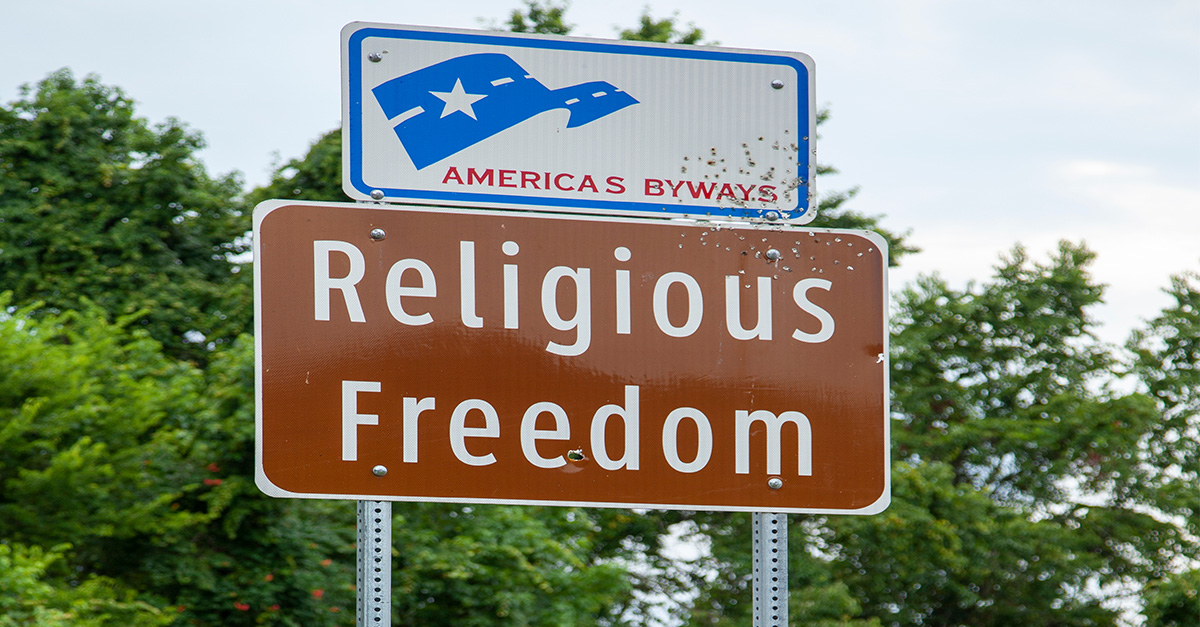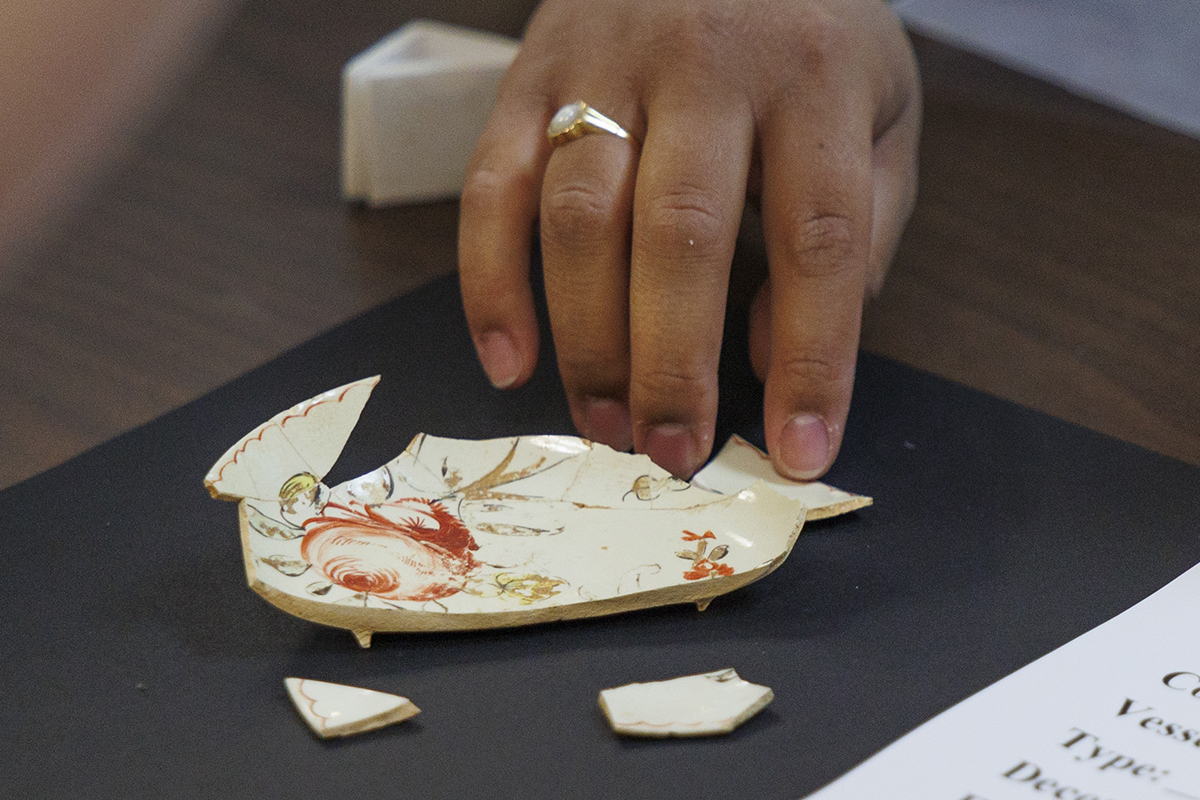


Get a free copy of Parental Rights & Education when you subscribe to our newsletter!

“The freedom to live and work consistent with one’s conscience is critical.”
–MONTANA REP. AMY REGIER
As the federal government has become less kind to religious freedom and some states have enacted so-called nondiscrimination laws that persecute religious citizens for living according to their religious beliefs, legislatures in two states are working to actively protect religious freedom.
South Carolina Rep. Thomas Beach, R, has introduced the Live and Let Live Act, a bill which would protect the rights of all South Carolinians to live out their beliefs regarding marriage and sex without fear of being sued or shut down for discrimination.
The Live and Let Live Act, H. 3611, says in its preamble that after the legalization of same-sex marriage, many religious adoption and foster care agencies were forced to close or threatened with closure and some business owners providing wedding services have faced fines or been forced to close due to their religious beliefs. It states:
“Protecting religious freedom from governmental intrusion is a state interest of the highest order. Legislation advances this interest by remedying, deterring, and preventing governmental interference with religious exercise in a way that complements the protections mandated by the state and federal constitutions.
“Protecting the religious freedom of faith-based charities and educational institutions serves the state’s compelling interest in providing essential social services to the poor and educational opportunities to the next generation. This is also consistent with the state’s long tradition of cooperating with religious organizations when providing these critical services.”
The legislation would bar the government from taking any discriminatory action against a religious organization that performs or refuses to perform a marriage, or refuses to provide its facilities for a marriage, due to its religious beliefs.
In addition, the Live and Let Live Act would, among other things:
Finally, the legislation would allow a business, church, or organization to set sex-specific dress or grooming policies, as well as policies relating to access to bathrooms, locker rooms, and other private spaces, according to their religious beliefs.
Nathan Berkley, communications director for the Religious Freedom Institute, characterized the proposed Live and Let Live Act as “a sound piece of legislation that broadly protects religious individuals and institutions holding traditional views on marriage and the nature of what it means to be male or female. The bill addresses several key sources of religious freedom infringements, which continue to proliferate across America.”
The Live and Let Live Act is still in the committee phase and has not been voted on.
Montana State Rep. Amy Regier, R, has introduced a bill that would protect the conscience rights of medical professionals by allowing them to refuse to participate in procedures or treatments that violate their religious beliefs, including abortion, physician assistance in dying, prescribing marijuana or opioids, and providing gender-transitioning medical or surgical treatments.
HB303 prohibits employers from taking any disciplinary action against practitioners who object to procedures that violate their beliefs, prevents insurance companies from being forced to pay for services that violate their religious beliefs, and allows healthcare facilities to opt not to provide services violating the organization’s beliefs.
HB303 also contains a section prohibiting the Department of Public Health and Human Services or any licensing board from reprimanding, sanctioning, or revoking the licensure of a medical practitioner based on their speech.
Regier, a registered nurse, noted the significance of the legislation by saying, “The freedom to live and work consistent with one’s conscience is critical.”
Some think the bill would allow medical professionals to refuse services to patients. Nathan Allen, an emergency physician and one of three board-certified healthcare ethics consultants in the Montana, said that codifying conscientious objector privileges into law without rules is irresponsible. “This will disproportionately impact the most rural Montanans.”
By contrast, Shaun Gillis, an OB/GYN who works in Bozeman, Montana, testified in support of the bill, explaining that it is necessary in today’s culture. She said she’s refused to provide abortion services during the 20 years she’s been practicing. “I would like to continue doing so,” she stated.
The legislation passed the Montana House of Representatives 63-33 and has been sent to the Montana Senate.

The government is increasingly embracing secular beliefs and behaviors as a kind of de facto religion, as seen in such examples as introducing pro-LGBTQ legislation like the Equality Act, using anti-discrimination laws to force Christians to participate in same-sex weddings or celebrate gender transitions, leveraging the regulatory power of the state to target religious adoption and foster care agencies, or censoring employees from speaking about their religious beliefs while away from their jobs.
The First Amendment and its religious freedom clause is being deeply infringed upon, almost by default at this point. States must step in to protect the First Amendment rights of religious Americans so they don’t end up spending years and fortunes fighting within the legal system for their God-given right to live according to their religious tenets.
Americans shouldn’t need extra state laws like this. Their rights to free exercise of religion and freedom of speech are protected by the First Amendment, but sadly, the federal government and many states have denigrated our Constitutional rights and will only continue their concerted effort to push religion completely out of the public square and even out of private spaces.
These two pieces of legislation in South Carolina and Montana will be tremendous aids in protecting religious freedom for their residents, and there are other states that have religious liberty legislation in the works, among them Nebraska and Georgia. But other states must also step up.
2 Corinthians 3:17 says, “Where the spirit of the Lord is, there is freedom.”
This divine truth lies at the heart of the American system and it must be protected. Although the Supreme Court has made some strong rulings lately on this issue, the best check on these growing efforts to force Americans to do, say, and think things that are antithetical to their religious beliefs is the American people.
Christians who hold their biblical beliefs dear must do their part to protect themselves and their family’s right to exercise those beliefs by engaging in the political process, such as writing or calling a state representative to voice support for a religious liberty bill and making it a point to vote in all local, state, national, and special elections for candidates who support religious liberty. Christians should also be praying daily for those standing firm on the frontlines of this fierce battle over our basic, most foundational freedom to worship freely.
Ready to dive deeper into the intersection of faith and policy? Head over to our Theology of Politics series page where we’ve published several long-form pieces that will help Christians navigate where their faith should direct them on political issues.

Notifications